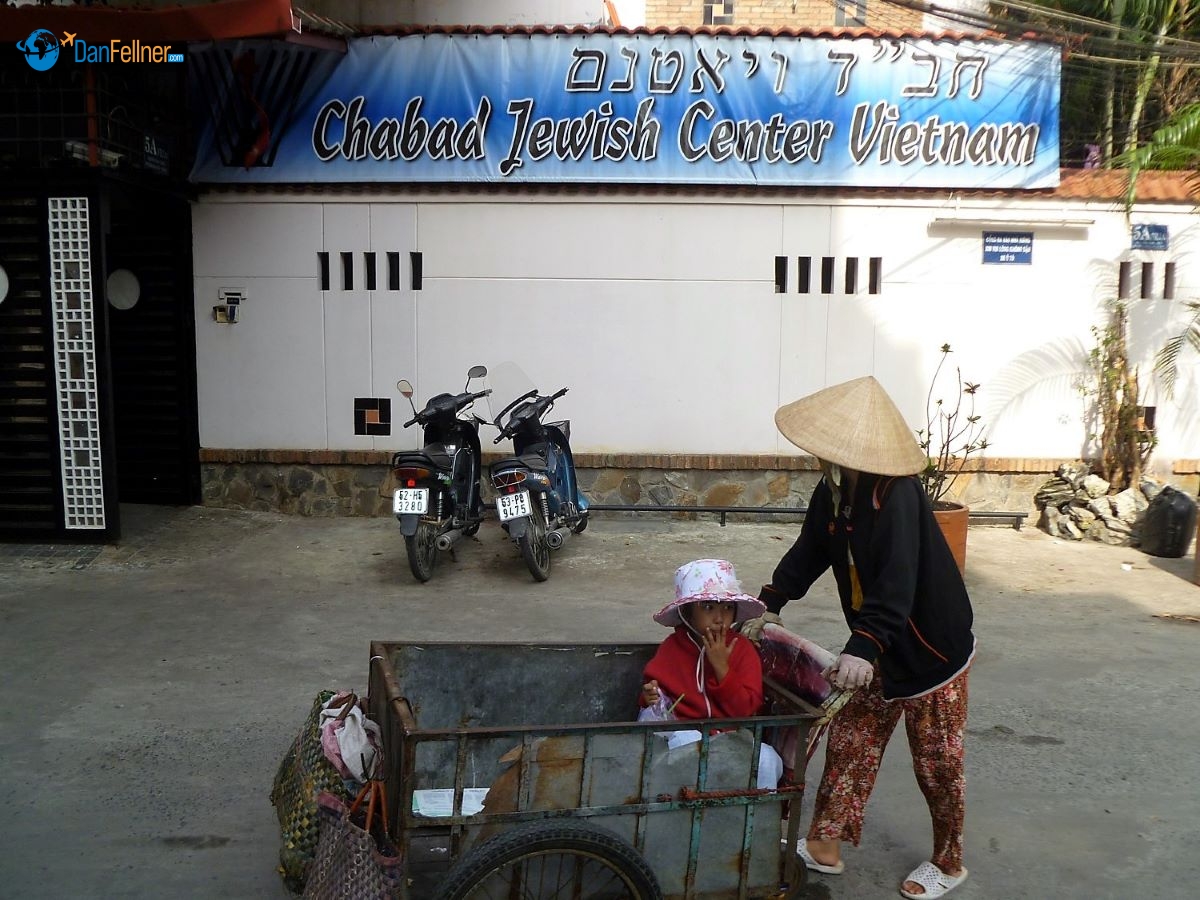Chabad meeting the needs of Jews in Vietnam
The Jewish News of Greater Phoenix – January 14, 2011
HO CHI MINH CITY, Vietnam – Carefully following the directions I printed off the Chabad-Lubavitch website, I set off on foot in Ho Chi Minh City in search of the sole outpost of Jewish communal life in the Socialist Republic of Vietnam.
I passed the InterContinental Hotel on Hai Ba Troung Street and made a right turn at the heavily guarded French consulate.
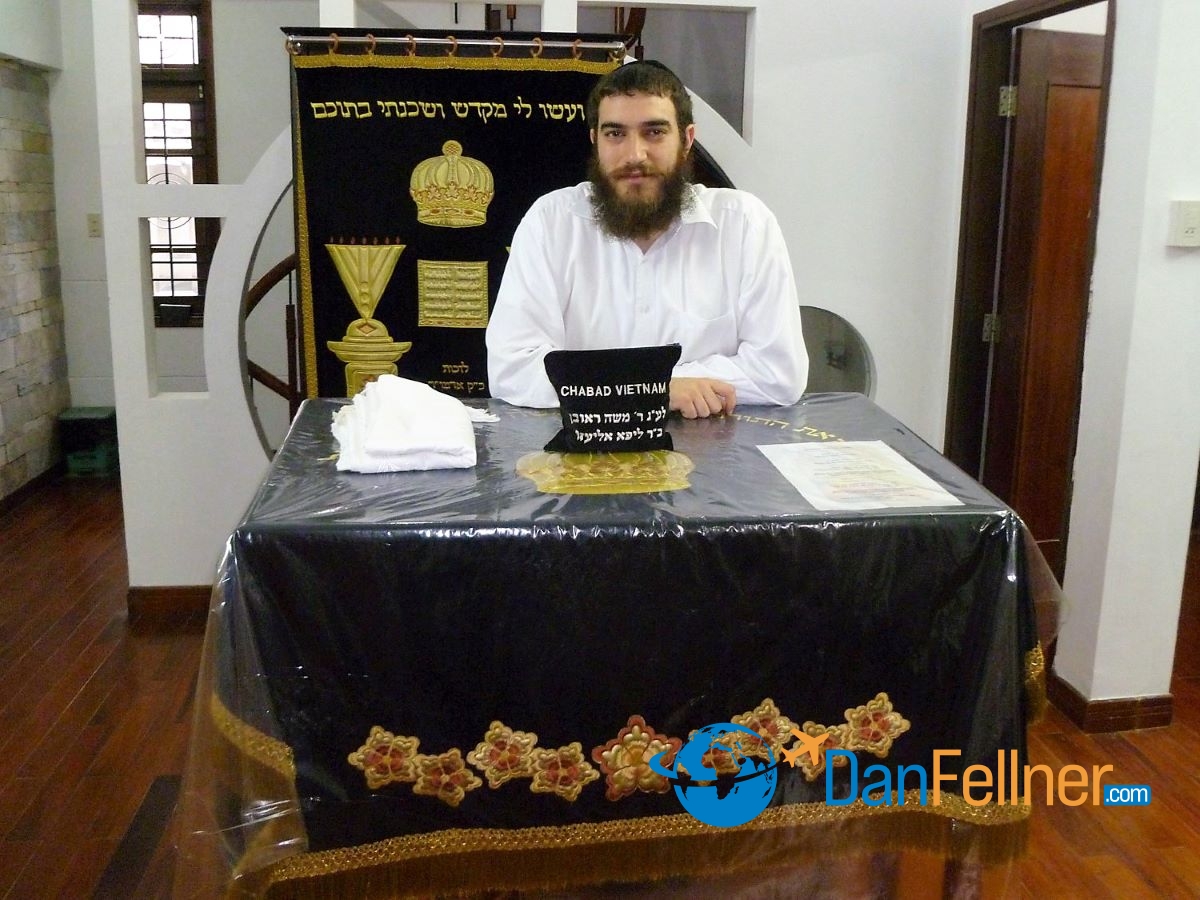
Rabbi Menachem Hartman in the Chabad sanctuary in Ho Chi Minh City, Vietnam.
Each street crossing was perilous with throngs of Vietnamese motorbike drivers seemingly paying no attention to pedestrians. Even the sidewalks offered little respite from the chaos as food stalls, newspaper hawkers and parked scooters left scant room for walking.
Continuing on Nguyen Thi Minh Khai Street past a soccer stadium, I turned left at alley #12 and walked another 200 yards. There, on the left side of the alley, across from a row of vendors selling everything from fresh fruit to stir-fried meals of rice and meat, was a three-story villa marked “5A” with a large blue sign in Hebrew and English welcoming me to “Chabad Jewish Center Vietnam.”
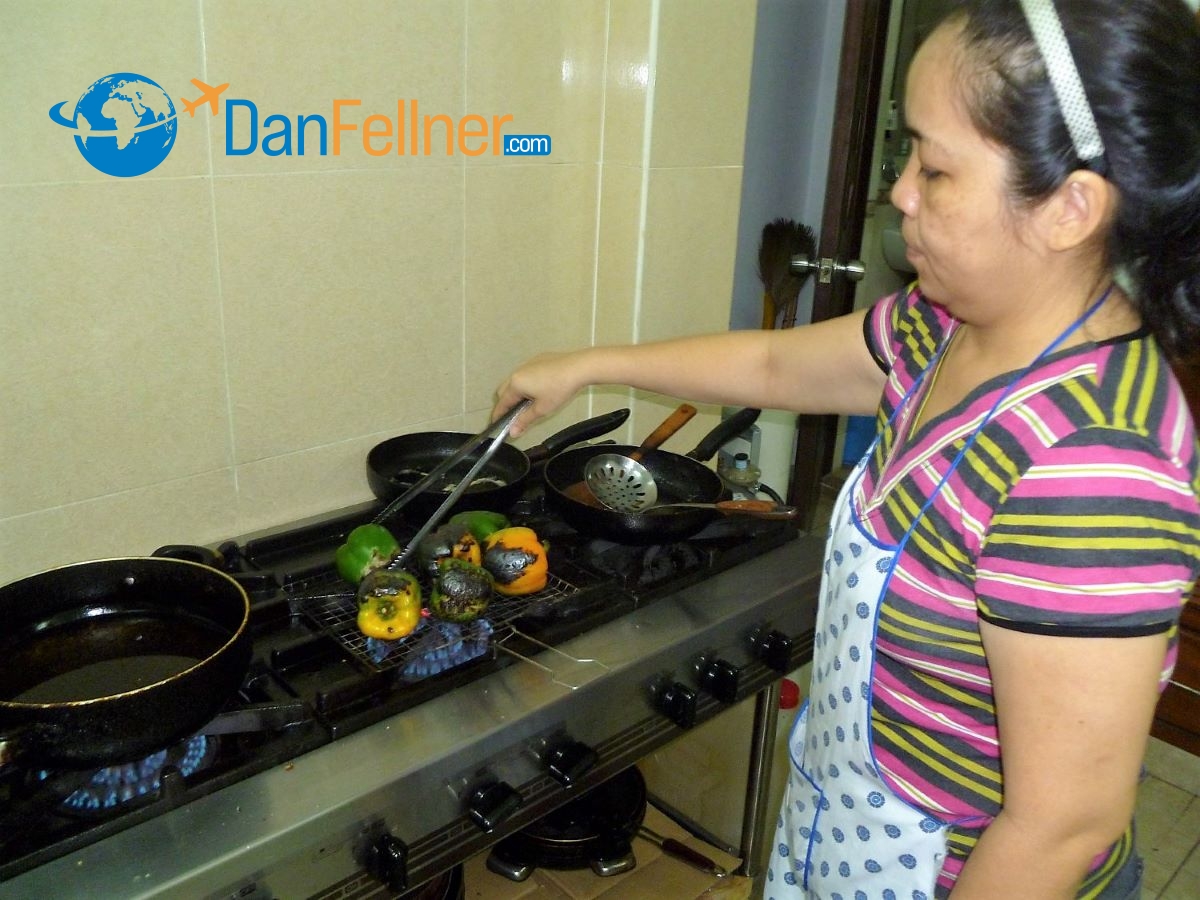
The kosher kitchen inside the Chabad House in Ho Chi Minh City, Vietnam.
It might have been a rather unusual setting for a Jewish house of worship. But as I learned when I stepped inside and met with Rabbi Menachem Hartman, Judaism in this Southeast Asian city of 9 million people is surprisingly robust.
As we sipped papaya shakes prepared in Chabad’s kosher kitchen, Hartman, a 29-year-old Israeli, told me about Jewish life in Ho Chi Minh City. He and his wife arrived here in 2006 to establish the first permanent Chabad center in the country.
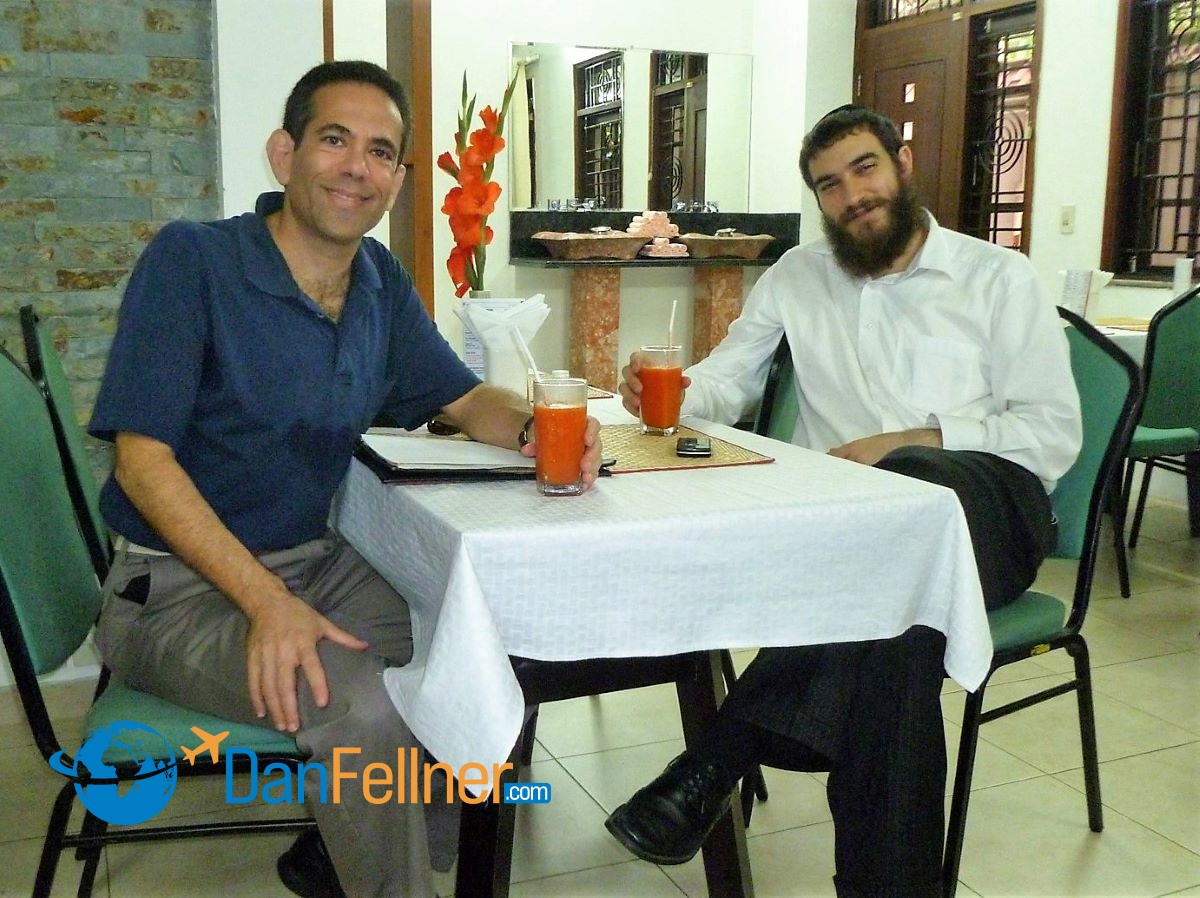
The author enjoying a papaya shake with Rabbi Menachem Hartman at the Chabad House in Ho Chi Minh City, Vietnam.
Hartman said 150-200 Jews – “it’s up and down” – live in Ho Chi Minh City year-round. They are drawn to the country for its growing economic opportunities, warm climate and relatively inexpensive cost of living.
There is also a group of businesspeople whose work brings them to the country on a regular basis, as well as Jewish travelers coming for a one-time visit. I fit into the latter category, as I was on a 10-day vacation in Vietnam and Cambodia with my friend Henry Stein of Tempe.
Wherever they come from and whatever brings them to Vietnam, many feel compelled to connect with fellow Jews and visit Chabad House.
“Each has their own reason for coming here,” said Hartman. “Some come for the kosher food. Some want to hear Hebrew. Some are just missing home.”
He said 40-50 visitors attend Shabbat services every Friday evening. Afterward, they sit down to a meal of homemade challah, Israeli salad, soup and kosher meat imported from nearby Thailand.
To keep up with the growing number of visitors, Chabad moved to a new facility in October, twice the size of its previous location. The kosher kitchen and a spacious restaurant occupy the first floor. The second floor houses a sanctuary and library.

Motorbikes are a popular form of transport in Ho Chi Minh City, a city of about 9 million people.
The top floor hosts Sunday school classes and an everyday kindergarten with six children enrolled. During my December visit, the school was closed because Rachel Hartman, the rabbi’s wife and one of the school’s teachers, had temporarily returned to Israel to give birth to the couple’s third child.
There also are plans soon to build a mikvah, or ritual bath.
It’s beautiful,” Hartman said of the new facility. “People who are coming feel more comfortable. We feel very happy being here.”
During his tenure in Vietnam, the rabbi has presided over seders, High Holiday services, one bris and three bar mitzvahs, one of which was for a family that stopped in Vietnam while on a cruise.
“You need an open mind for different things, different ideas,” he said of being a rabbi in Southeast Asia. “For me, everything looks normal. For some people, this looks unbelievable.”
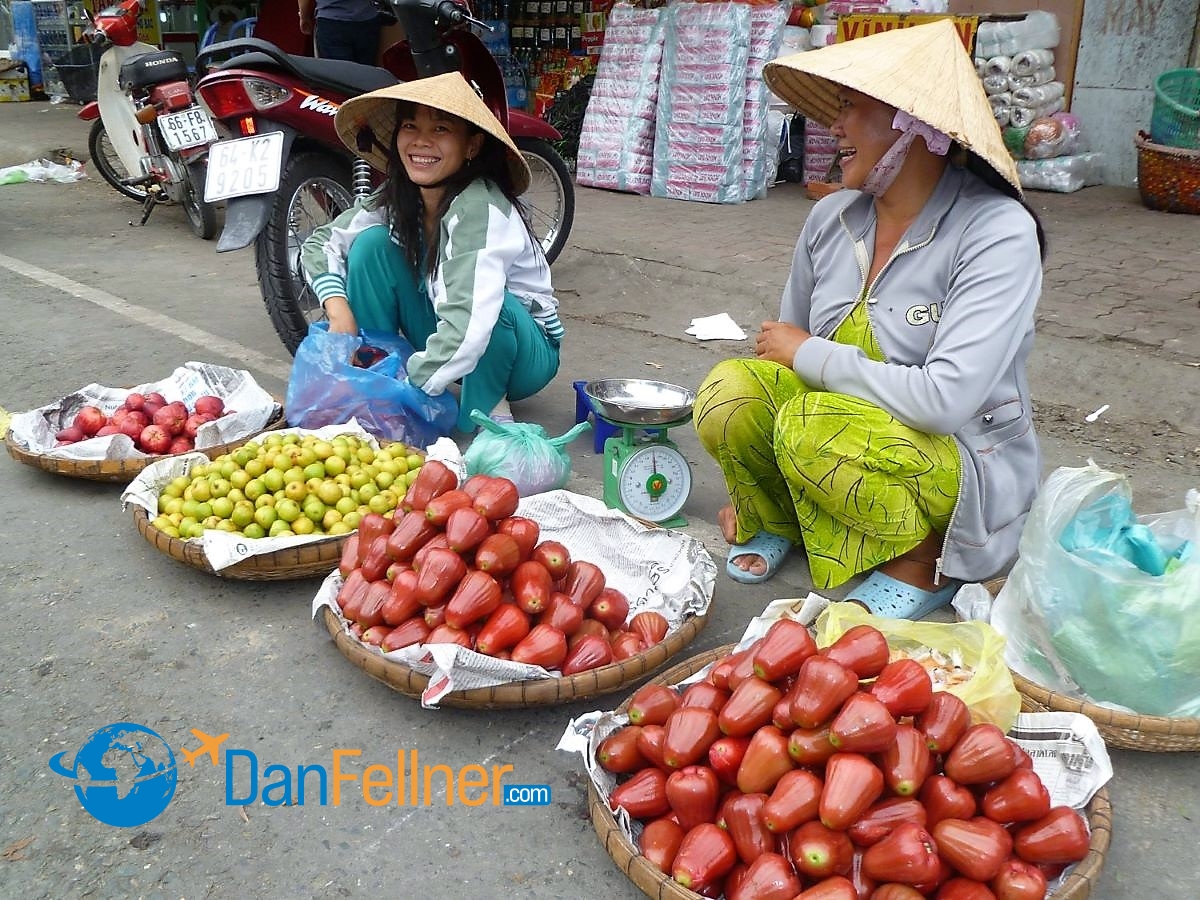
Fruit vendors at an outdoor market in Vietnam.
When Chabad first opened in the country, Hartman said there was some reticence on the part of the Vietnamese government, which was concerned that there would be an attempt to convert the local population to Judaism.
“They know that’s not what we do,” he said, adding that relations now with the government are positive. “They are OK with us.”
The Vietnam War ended in 1975 following the withdrawal of American troops. Saigon, which had been the capital of South Vietnam and the headquarters for America’s military during the war, was officially renamed Ho Chi Minh City after the former leader of North Vietnam. Most locals, though, still refer to the city as “Saigon.”
Hartman said he has met several dozen Jewish war veterans who have come back to visit the country in which they fought 40 years ago. One veteran – a doctor and regular Chabad visitor – returns each year to volunteer at a medical clinic.
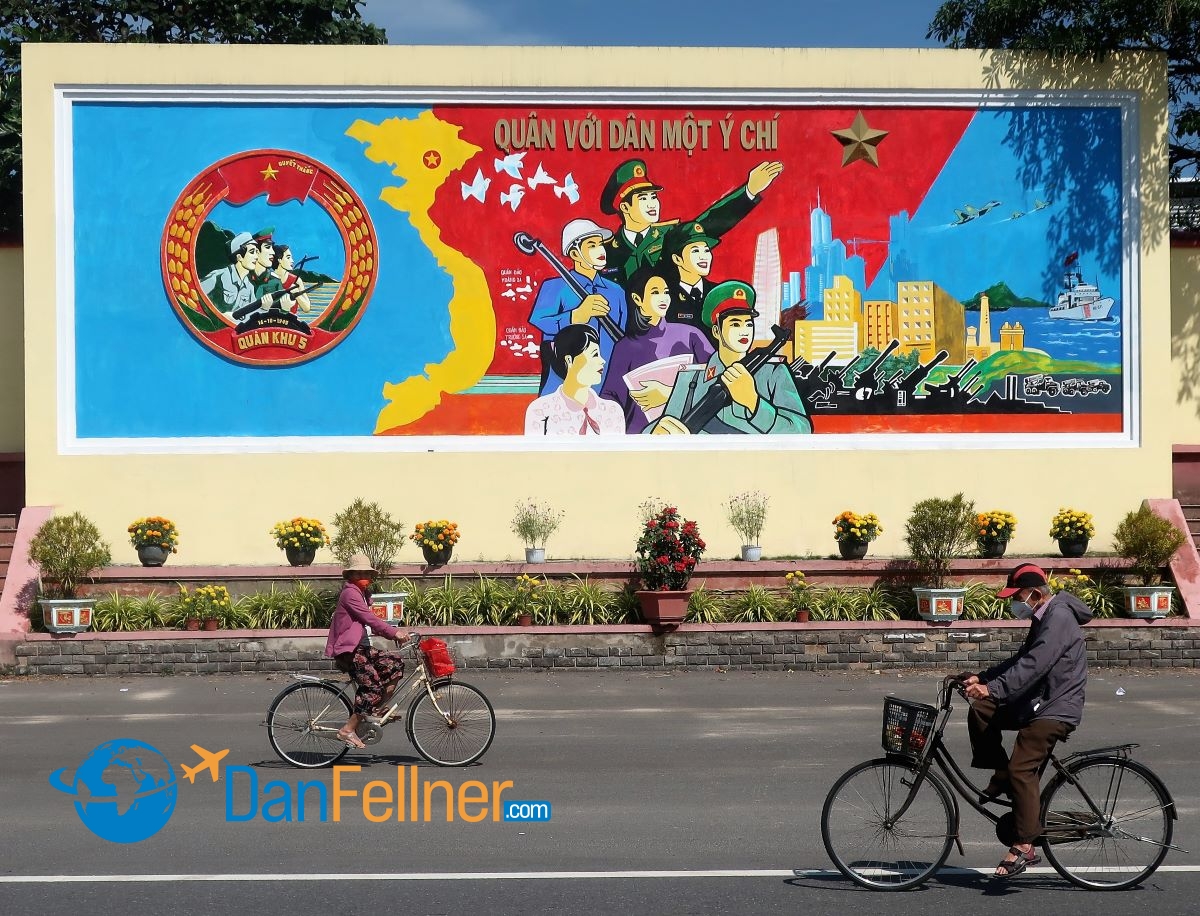
There are government propaganda posters on nearly every street throughout Vietnam, including this one in the city of Da Nang.
“He told me he comes every year because he wants to give back to Vietnam what America took during the war,” he said.
Hartman said there is hope that it won’t be long before there is a formal Jewish presence in Hanoi, the capital city of Vietnam. Another Chabad facility recently opened in Phnom Penh, the capital of neighboring Cambodia.
“If there are Jews, there is Chabad House,” he said.
Before I left, Hartman showed me Chabad’s guestbook, which was full of glowing comments from recent visitors. One note was written by an American woman who had visited in December. She was traveling with her husband, who adheres to a kosher diet and would only eat fish at local restaurants.
“My husband was starting to look like a fish after three weeks in Vietnam,” she wrote. “Thank goodness Chabad was here and we could meet extended family and eat meat.”

© 2011 Dan Fellner

